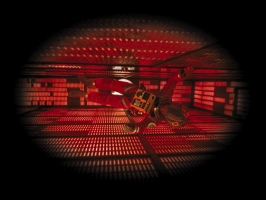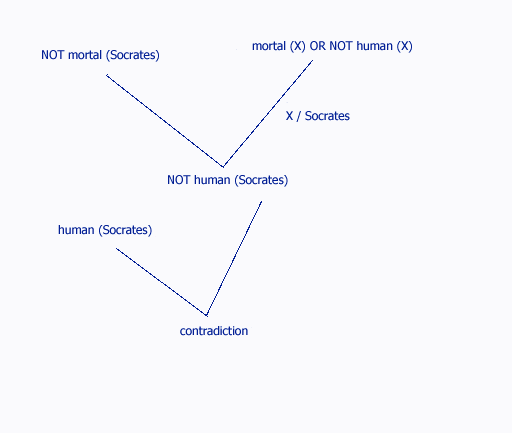Automatic theorem proving
 Fig 1: HAL: artificial intelligence in the movies. |
Most of the logic-using programs in AI are based on studies of the automatic demonstration of logical theorems, and especially on the resolution method defined by J.A. Robinson in the
1960s and the development of strategies implemented to improve the efficacy of
demonstrations. The product of this study are also
programming in logic![]() and
language called
Prolog
and
language called
Prolog![]() (from PROgramming in LOGic), which is becoming one of the most interesting and innovative programming paradigms for the development of intelligent applications.
(from PROgramming in LOGic), which is becoming one of the most interesting and innovative programming paradigms for the development of intelligent applications.
The following example shows a simple case of automatic proof (very similar to the ones produced in Prolog). We have to prove a well known syllogism: Socrates is mortal.
The knowledge base:
- X is mortal or X is not a human (i.e., if X is human, then X is mortal)
- Socrates is a human
- mortal(X) OR NOT human(X)
- human(Socrates)
We prove the theorem by following the reductio ad absurdum: we suppose that Socrates is not mortal and we show that this leads to a contradiction.

The Webweavers: Last modified Wed, 09 Mar 2005 11:04:58 GMT